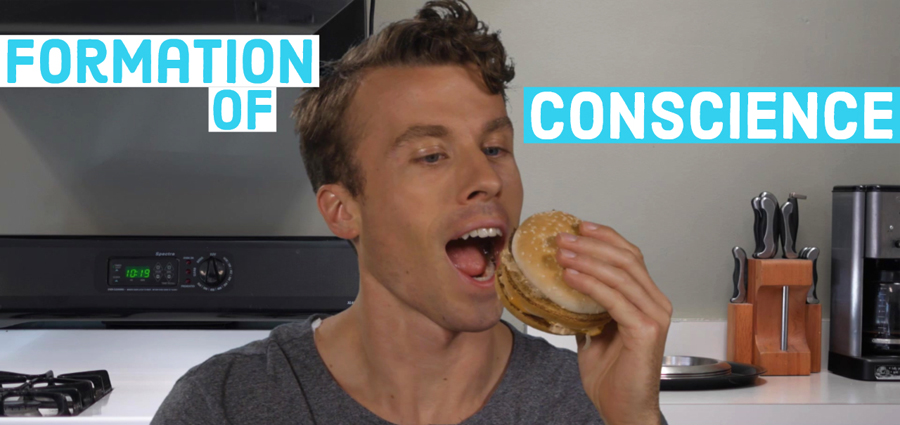
Conscience isn’t just something that you’re born with. It needs to be formed in the right way, so it can help us figure out right from wrong.
The conscience goes beyond your gut, instinct, or little voice inside you. But how should we use it? How do we go about forming it? Kai and Libby fill you in on how to form the conscience and eventually make better decisions because of it.
Diving Deeper
Think about a time when you allowed your conscience to help you make a decision that you know was right, even if it was challenging. Now think about a time when you made a choice you later regretted or felt uneasy about, when you ignored your conscience. Does reflecting on these examples help you to recognize the different senses you have of the small whispering voice of your conscience?
Do you find it easy or challenging to take time in your day to be still and listen within? What might you try to help you grow in the discipline of taking interior time?
Who are some moral theologians you deeply respect? What about their writings on morals and ethics do you most resonate with? Why?
Activity
To help yourself to better hear the voice of your conscience, practice doing a brief (5 minute) Awareness Examen at the end of each day. Allow yourself to be still and present with God. Ask for the grace you desire. Reflect on your whole day by noticing the places where you felt closest to or farthest from God. Thank God for the things you’re grateful for, and ask for God’s grace and strength in those places where you were most challenged. Talk to God as a friend about your day. Lastly, see if you notice any words, phrases, senses, or ideas arise from talking with God about how to approach the next day.
Reflection by Father Vince Kuna, C.S.C.
Once familiarized with the Ignatian spiritual exercise called the Awareness Examen, you’ll get a better sense that conscience is revealed by those things we choose to do and choose not to do. So try an advanced Awareness Examen. How did your conscience help you make difficult decisions through the course of your day? How was it also formed (or perhaps ignored) when you chose not to do something? For example, remaining silent and not walking away, or asking to change the topic, when lunch-break conversation digresses towards gossip.
